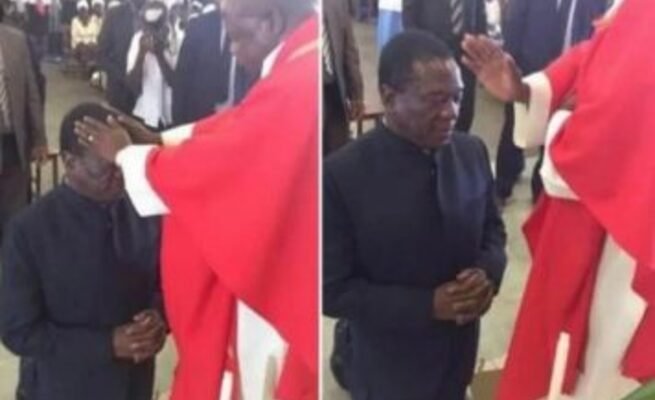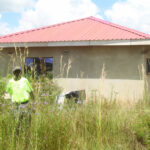President Emmerson Mnangagwa is expected to seek divine guidance this Sunday, joining thousands of worshippers at the 8th annual Zimbabwe National Thanksgiving and Dedication Service in Bulawayo.
The service, held under the theme “Our Country, Our Opportunity,” celebrates the nation’s progress and potential as it strives towards Vision 2030. However, this display of faith comes amidst growing international concern over potential political instability stemming from efforts within his Zanu-PF party to extend his presidency beyond its constitutionally mandated limits.
The strong historical relationship between the Zimbabwean government and religious institutions is well-documented, characterised by mutual support and collaboration on various social and development initiatives. The church frequently plays a pivotal role in community development, offering essential services and support where government resources may be insufficient. This year’s service, therefore, holds added significance, providing a backdrop against which concerns about the President’s political future are playing out.
Meanwhile, a report from the United States-based Robert Lansing Institute has cast a shadow over the national thanksgiving. The report, titled “Securing a Third Term: Strategies, Risks, and Implications for Zimbabwe’s Democracy,” warns of the potential for widespread civil unrest and international isolation should attempts to amend the constitution to allow President Mnangagwa a third term succeed.
The Institute’s analysis highlights the significant legal and political hurdles involved in such an undertaking. “Amending the constitution to allow a third term could face legal challenges and would likely require a national referendum, posing significant hurdles,” the report notes. It further warns of potential public resistance, stating, “There is potential for public resistance, as citizens may view the move as undermining democratic principles, leading to civil unrest or increased support for opposition movements.”
The report predicts that a push for a third term would likely lead to increased international isolation, potentially resulting in diplomatic sanctions or economic penalties. “Pursuing a third term could attract criticism from the international community, potentially resulting in diplomatic isolation or economic sanctions, further impacting Zimbabwe’s economy,” the report states. While acknowledging that nations like China and Russia might support Mnangagwa due to geopolitical interests and Zimbabwe’s resources, the Institute stresses the potential damage to Zimbabwe’s democratic institutions.
“Pursuing a third term would likely accelerate the erosion of democratic principles in Zimbabwe, entrench authoritarian practices, and deepen public distrust in governance,” the report concludes. It further warns that while such a move might consolidate Mnangagwa’s power in the short term, it risks long-term instability, economic decline, and further marginalisation of Zimbabwe on the global stage.
The Institute’s analysis also considers the potential responses of regional bodies such as the Southern African Development Community (SADC) and the African Union (AU). It suggests that these organisations might prioritise regional stability over upholding democratic norms in Zimbabwe, potentially offering tacit support to Mnangagwa’s extended rule. The report notes that South Africa, as Zimbabwe’s neighbour and largest trading partner, has a strong interest in maintaining regional stability.
The potential for a third term resonates with the legacy of Robert Mugabe, Mnangagwa’s predecessor, whose removal in a 2017 coup followed years of political infighting and a failed attempt to manage succession within Zanu-PF. Opposition leaders have vehemently condemned the idea of a third term, warning of a return to dictatorship and the reversal of progress made in Zimbabwe’s democratic development.












